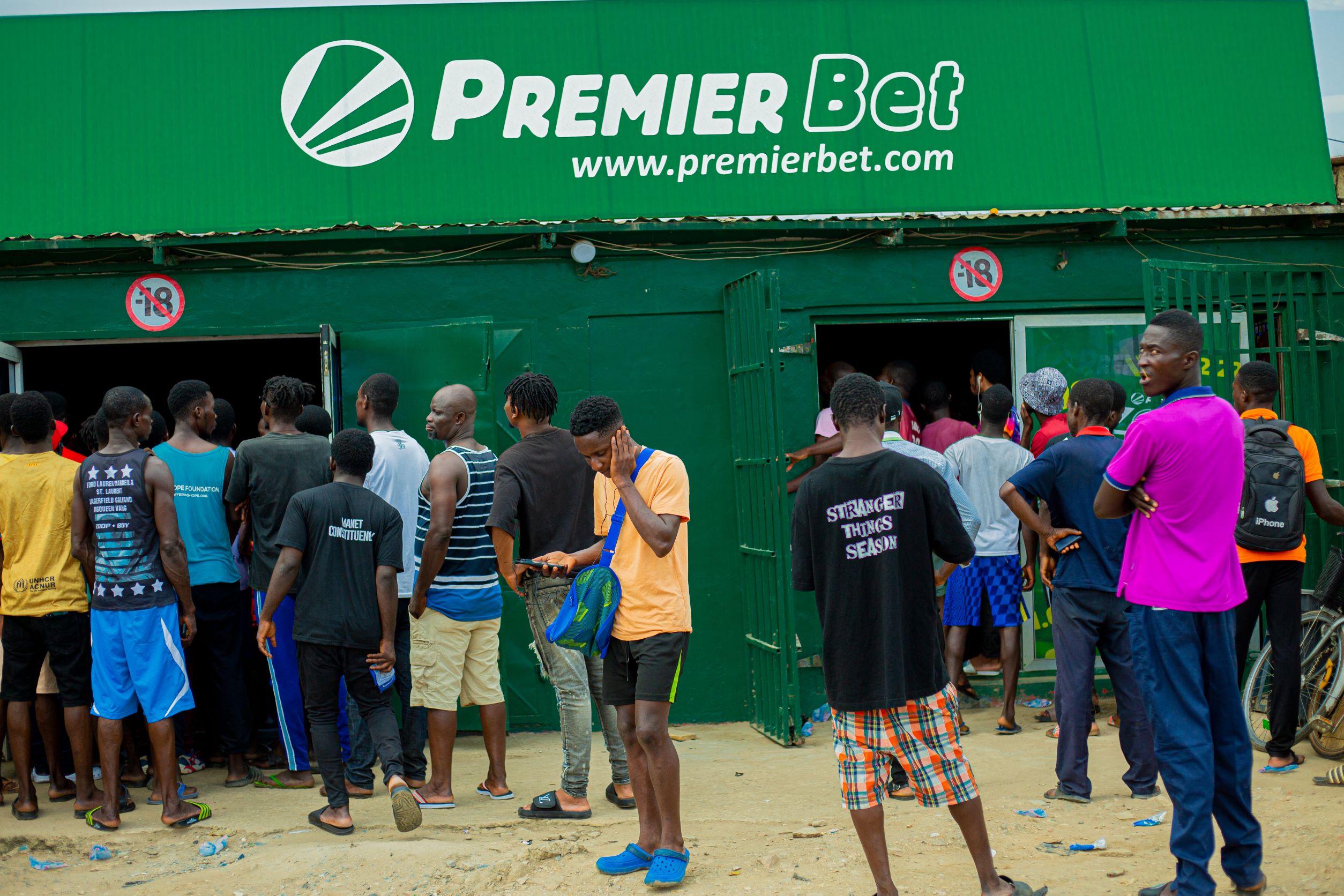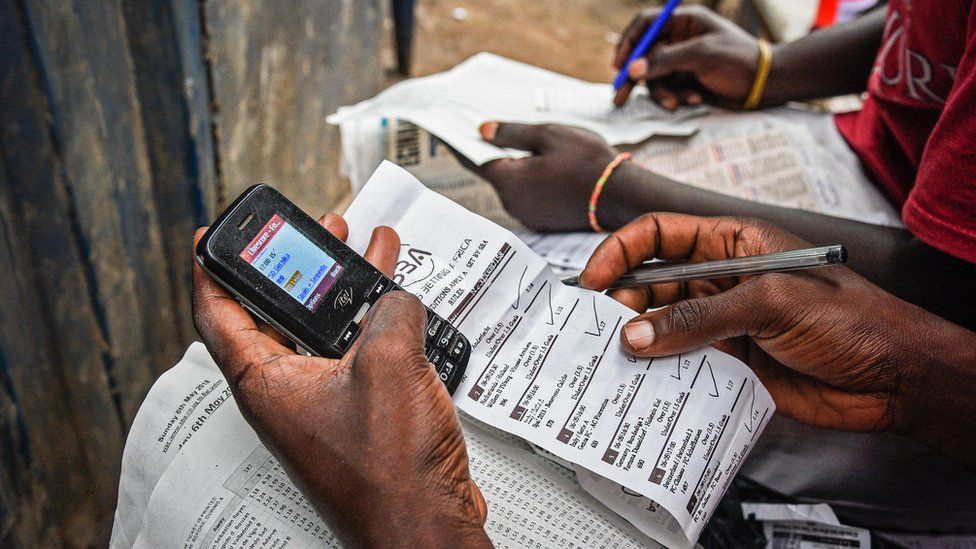…millions being duped by manipulated systems
…betting companies more powerful
…children aged 10 playing on the phone, in shops
Suicides after losing bets, depression and increased financial burden, including borrowing from ‘Katapila’ are some of the consequences Malawi now has to grapple with for reintroducing betting- with no proper controls, checks or audit systems.
The sports betting companies are now staging fake wins, and The Investigator Magazine tracked five of the seven mega winners of K30 million and above- some admitting having been employees of the companies, while some small-scale businessman was paid K3 million to proclaim he had won over K50 million.
Interestingly, foreigners who can’t be traced after winning vast sums of kwachas have won from companies with the exact origin of their nationality, raising suspicions if the wins are real or marketing gimmicks aimed at wooing gullible Malawians to bet more.
Malawi is among the countries where the betting companies are powerful, and the industry does not publish reports on its impact. The Guardian newspaper of the UK reported that this is a broad norm in most African countries experiencing bet crisis. Researchers found that in the 41 countries where gambling is legal, only two had published reports on its impact. Legislation for electronic gaming machines exists in 13 (31.7%) countries, and slot machines in nine countries (22%). Legislation addressing online products was identified in 15 (36.6%) countries and 18 (43.9%) for advertising.
Betting to death
At least nine people- all males aged between 16 and 45 committed suicide in Blantyre, Liwonde, Lilongwe, Mzimba and Kasungu after misusing money meant for other things on betting, including money from their employers.
An employee blew K9 million in one Southern District of Malawi, and another is said to have gambled money meant for salaries for another employee of more than K5 million.
Others have borrowed and borrowed that when things go tough, they resort to suicide. And nothing is being done to address the apparent catastrophic betting results, which are increasing mental health cases, deaths and even poverty among many of the already poor.
Wati, as reported by the UK’s Guardian Newspaper
The UK Guardian newspaper ran an article on suicide and betting in Malawi, whose extract is reproduced here:
One morning in June 2021, Kettie Bonongwe* was at home in her village in northern Malawi when she was told that the body of her 16-year-old son, Wati*, had been found. He had killed himself.
Bonongwe was shattered. “I never expected anything like this to happen,” she says. “It was heartbreaking for so many reasons.” She knew, however, what had pushed him to take his own life.
“I blame betting for his death. If it weren’t for betting, he would still be alive,” she says.
Wati had been gambling every day for at least a year, Bonongwe believes. His performance at school had dropped, and he wasn’t contributing as much to the household finances. In the days leading up to his death, he was being chased for outstanding debts.
A report by researchers from the Malawi Epidemiology and Intervention Research Unit (Meiru) came to the same conclusion. In interviews with Wati’s mother, uncle and best friend, it emerged that Wati had stolen money from informal employers to fund his gambling on two occasions, lied to hide his habit, lost a job, damaged relationships and was distressed when he lost money.
His best friend suggested he was “addicted” to gambling, and the circumstances leading up to his death tallied with research which has outlined how problem gambling can lead to suicide attempts.

Malawi has seen rapid growth in gambling since 2015, driven primarily by-products from Premier Bet, launched by Editec, a company with offices throughout Europe, including the UK. It currently operates in 15 countries in sub-Saharan Africa. Wati was known to use its services, the newspaper reported.
Free-for-all all phone gambling, Aviator’s worst
The Investigator Magazine created an account for use by one gambling expert from Japan and revealed that most aviator games offered by Malawi betting companies are either ‘tampered’ or simply too rigged to pay out at certain times- not randomly.

Our account played aviator for one of the companies for six months, investing about K200,000, winning on average K10,000 per month, and losing the whole amount using different simulations.
While betting companies are heavily regulated and monitored in other countries, Malawi has no capacity to conduct online audits or monitor the betting company’s systems, leaving them free to continue fleecing Malawians.
Children as young as 10 years old are playing online games unhindered. In shops, before most closed, there was no age control, no fines, or monitoring, resulting in free-for-all play, which has affected many families.

The Investigator Magazine’s expert noted that it was difficult not to argue that Random Number Generators for Aviator on different Malawian platforms had been “tampered with” and that any big payout would be programmed.
“Recently, a betting company announced a huge win in which its platform showed it was half the amount won or less. The addition makes it suspicious and tells you these companies select winners or tamper with the RNGs to produce the results they want,” explained the expert.
Malawi sites do not have Return to Player (RTP), a percentage of money wagered that a game pays back to players over time. They could be displaying fake numbers like so far ABC won, but nobody has been able to verify. According to our analysis of the Malawi betting websites, the Malawian RTP are only done as quotes on websites by a few random winners- at least 10 people winning 1 million and above in six months.
“Rigged systems and algorithms to favour the house: Some unscrupulous operators manipulate their systems and algorithms to ensure that a significant majority of bets go in their favour. This ensures that customers consistently lose and the company profits,” he explained.
The Investigator Magazine found out that all government agencies, including the Financial Intelligence Agency and betting regulators, do not have experts on betting systems and online gambling, making it difficult to trace money movements and only rely on reports from the companies.
Fake winners galore
The Investigator Magazine found that one in four big winners paraded by some of the companies were fake winners, and money was never paid in any of their bank accounts- unless cash was paid, as anything is possible in Malawi.
One Trader (name withheld) who was proclaimed to have won over K50 million was traced, and he still remains at his small shop, saying nothing changed except that he got about K3 million to reinvest in his business.
“Imene ija inali show, anandilipila zanga,” said the winner to our investigator.
We traced four others whose stories were almost similar, and their lives have not changed, with one regretting being used as people started begging him daily for assistance, but he could not explain why he was not spending his millions.
Just this month, two foreign nationals won alleged vast amounts of money from companies associated with their countries of origin, raising eyebrows if they won or were picked.
“It’s a game of chance, but the odds and probability that the millions of Malawians playing the games don’t win the same level as their foreign counterparts who coincidently come from the same countries as the companies makes the whole thing suspicious. We need to investigate if money indeed was paid to his account,” challenged an observer.

Misleading wins and false advertisements attract more customers and often entice customers with false promises of huge payouts, which are common in sports betting
Nobody to verify, hold betting companies accountable for fake winners and scams
Apart from a lack of capacity, Malawian’s best strategy is to avoid gambling as, just like tobacco- the regulatory environment is weak, and none of the manipulative companies will ever face justice.
In short, the public is on its own, and society must devise measures to protect the young from betting addiction.
The presence of fake winners and scams in the betting industry poses significant risks to individuals, families and national development as suicides claim breadwinners, loss of capital and increased mental health costs, which are now becoming an order of the day- thanks to betting.










